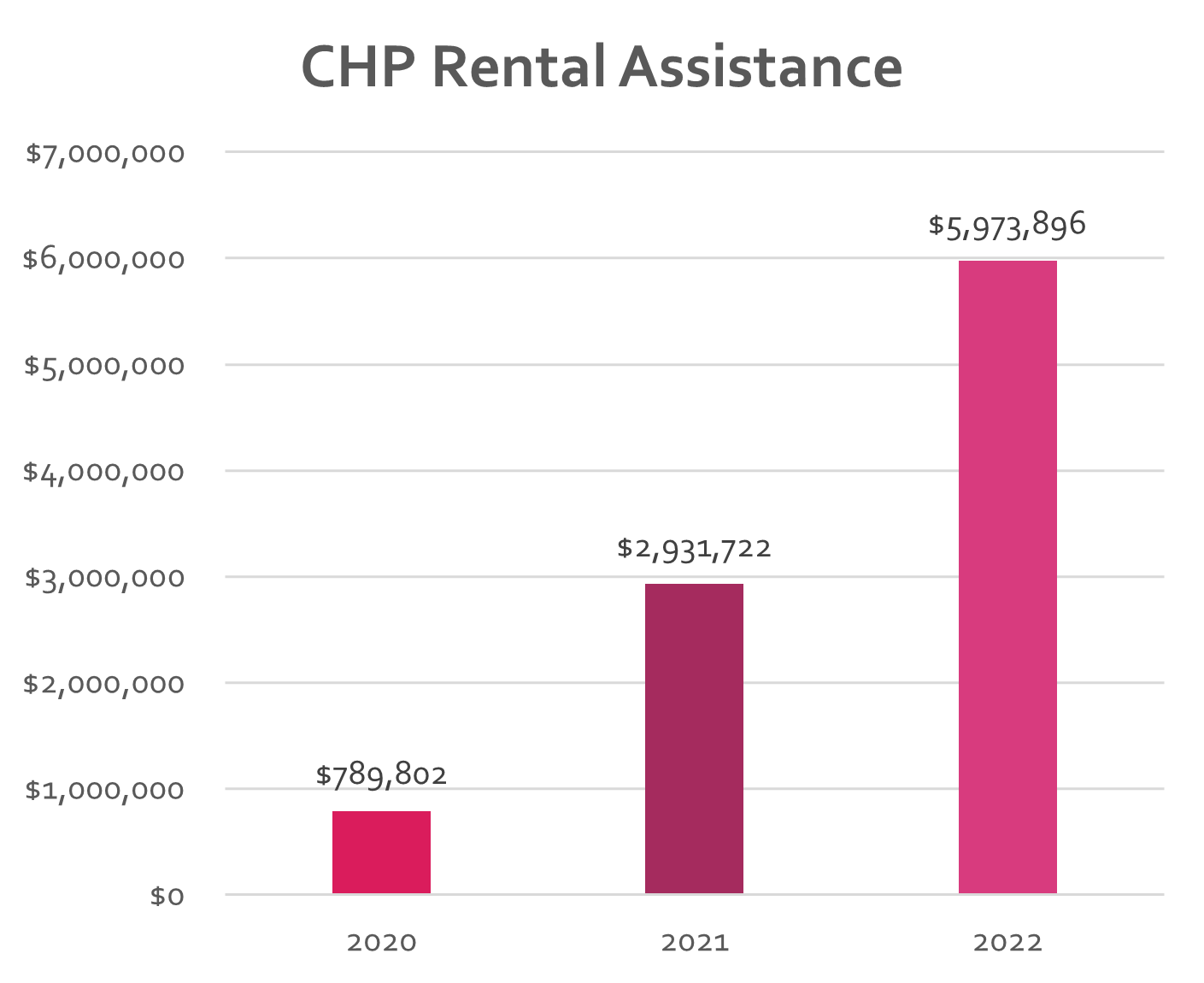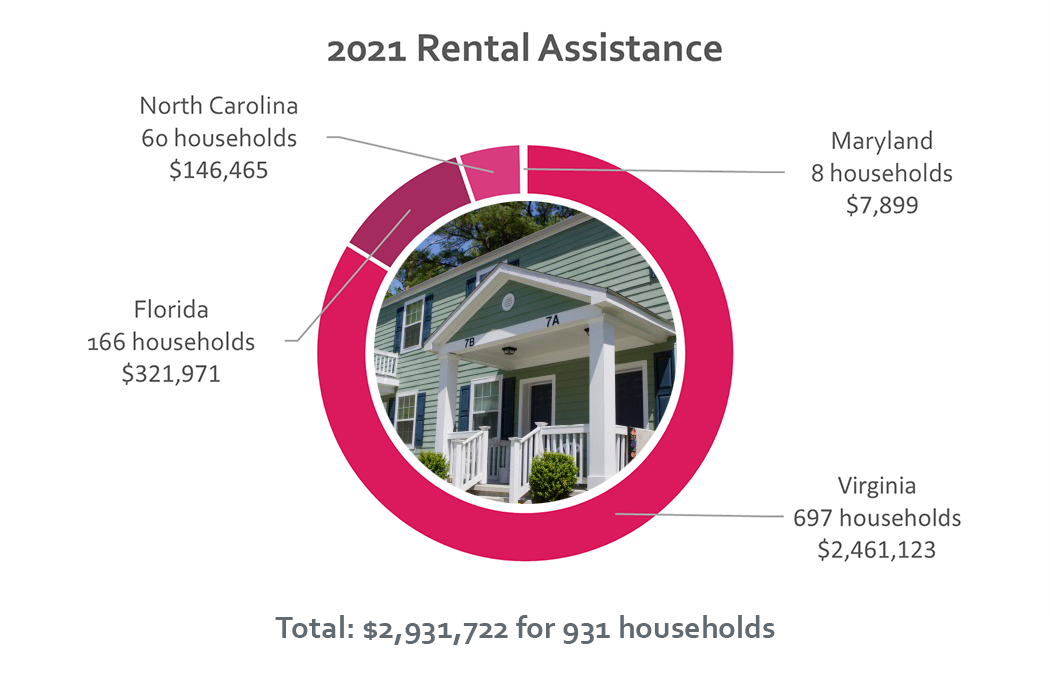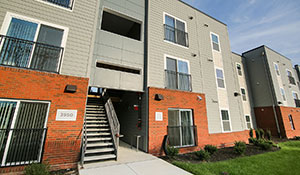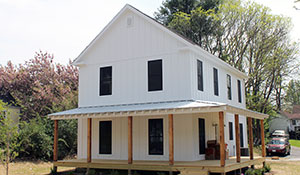June 10, 2022
Like renters around the country, Virginia Beach resident Suree Foose faced lost wages and financial uncertainty due to the pandemic. But after Community Housing Partners (CHP) helped her apply for assistance through the Virginia Rent Relief Program last year, her situation changed.
“I was able to pay past due rent for several months and still be able to provide food for my family,” said Foose, who has lived at CHP’s Seahaven Apartments for the past two years. “When I got the notification that my rent was being paid, I was literally shaking, and my jaw dropped with the amount that was being paid.”
Almost all residents like Foose who applied for the program received funding, and in some cases, they were awarded advance rent for upcoming months. “I am very grateful, and I hope I will be able to pass a blessing along to someone else one day,” Foose said.
 Since 2020, CHP has connected thousands of households across four states with more than $9.6 million in rent. This includes 511 CHP households that received more than $789,000 in 2020 and 931 households that received more than $2.9 million in 2021. This year, CHP connected an impressive 1,692 households with more than $5.9 million in rent relief before the Virginia Rent Relief Program—which was the largest among the state programs where CHP has a presence—concluded on May 15.
Since 2020, CHP has connected thousands of households across four states with more than $9.6 million in rent. This includes 511 CHP households that received more than $789,000 in 2020 and 931 households that received more than $2.9 million in 2021. This year, CHP connected an impressive 1,692 households with more than $5.9 million in rent relief before the Virginia Rent Relief Program—which was the largest among the state programs where CHP has a presence—concluded on May 15.
“This program has not only promoted housing stability among our residents, but also boosted our organization’s financial stability, ensuring that we can continue to carry out our mission to create homes and communities that are healthy, sustainable, and affordable during a time of crisis,” said Sara Hoke, Housing Stability Manager for CHP Resident Services.
Low-income communities had been particularly vulnerable during the pandemic, but the arrival of state and local resources had been a boon for residents seeking assistance. The Virgnia Rent Relief Program (previously known as the Virginia Rent and Mortgage Relief Program) started with funds from the CARES Act and an additional $60 million allocation from the state. Although CHP expanded its efforts to include Florida, North Carolina, and Maryland residents, CHP households in Virginia received the largest share of funding. In Virginia alone, CHP connected 378 households with $662,722 in rental assistance in 2020, plus 697 households with $2.7 million in assistance in 2021. (Learn more about the start of the program from last year’s impact story.)
 Residents who had been furloughed, lost their job, missed worked because of a COVID diagnosis, or had to leave a job to care for school-age children were often eligible for rent relief. For residents, the benefits have been tremendous. “With me being a single person, it has helped relieve some unnecessary stress. It did make me feel good to not turn to a church and also receive an extra three months of rent relief,” said one CHP resident. “There were times I didn’t even have any food but with the rent relief I was able to catch up on life since the pandemic.”
Residents who had been furloughed, lost their job, missed worked because of a COVID diagnosis, or had to leave a job to care for school-age children were often eligible for rent relief. For residents, the benefits have been tremendous. “With me being a single person, it has helped relieve some unnecessary stress. It did make me feel good to not turn to a church and also receive an extra three months of rent relief,” said one CHP resident. “There were times I didn’t even have any food but with the rent relief I was able to catch up on life since the pandemic.”
Stories like these motivated Desiree Alston, Resident Services Housing Stability Coordinator, and her colleagues to excel day in and day out. “It feels amazing to hear residents come back with praise reports and gratitude for assisting with their rental hardships and helping them out of tough financial situations,” Alston said. “Housing affects almost everything. Without stable housing, individuals and families facing eviction can suffer through many different struggles. The Rent Relief Program is a resource to jump start stability for a lot of our residents.”
To manage the program, CHP set up a rental hardship hotline for residents and contacted those with high delinquency. It also created a guidebook and training for staff members. According to Hoke, the program would not have been possible without the Resident Services, Property Management, Finance, and Compliance teams. CHP also worked with Legal Aid to connect residents in the Hampton Roads area with rent relief.
“As a sub-grantee of the Rent Relief Program, Legal Aid was able to hire navigators to help residents attain funding,” Hoke said. “It was great to have a nice working relationship with Legal Aid and to show that everyone was working toward a common goal: keeping people housed.”
In addition to helping reduce the number of households that fall behind on rent, emergency rental assistance programs can address social and economic disparities highlighted by the pandemic. Research has shown differences in case counts, hospitalization rates, and mortality rates from COVID-19 based on income and race With both the eviction moratorium and rent relief programs now over, CHP staff members are thinking through its next steps to promote housing stability.
“We are asking ourselves, ‘What services do we need to offer residents after a pandemic?’ ” Hoke said. “CHP offers homeownership counseling in the New River Valley. Do we need to be offering some form of housing counseling or financial counseling for resident of our rental communities as well, and what would that look like?”
Learn more about CHP’s housing stability programs on the Resident Services webpage and its pandemic response on the COVID-19 Information webpage.


